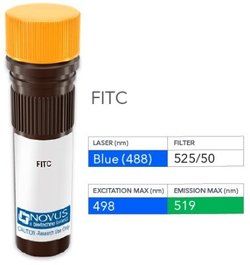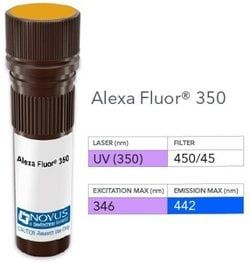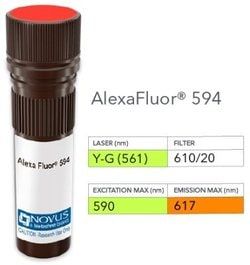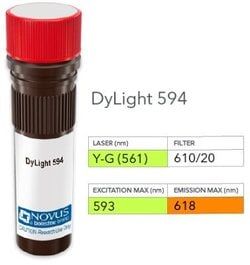Melanoma Marker (MART-1 + Tyrosinase + gp100), Mouse anti-Human, FITC, Clone: A103 + T311 + HMB45, Novus Biologicals™
Manufacturer: Novus Biologicals
Select a Size
| Pack Size | SKU | Availability | Price |
|---|---|---|---|
| Each of 1 | NB006137-Each-of-1 | In Stock | ₹ 54,379.00 |
NB006137 - Each of 1
In Stock
Quantity
1
Base Price: ₹ 54,379.00
GST (18%): ₹ 9,788.22
Total Price: ₹ 64,167.22
Antigen
Melanoma Marker (MART-1 + Tyrosinase + gp100)
Classification
Monoclonal
Conjugate
FITC
Formulation
PBS with 0.05% Sodium Azide
Host Species
Mouse
Purification Method
Protein A or G purified
Regulatory Status
RUO
Test Specificity
This antibody cocktail recognizes three melanoma-specific proteins, which include MART-1, Tyrosinase and gp100. MART-1 is a newly identified melanocyte differentiation antigen recognized by autologous cytotoxic T lymphocytes. Tyrosinase is one of the targets for cytotoxic T-cell recognition in melanoma patients. The function of gp100 is not known but it is reported to be a useful marker for melanocytes and melanomas. This cocktail of three markers is designed for extremely sensitive labeling of formalin-fixed, paraffin-embedded melanomas and other tumors showing melanocytic differentiation.
Content And Storage
Store at 4°C in the dark.
Applications
Flow Cytometry, Immunohistochemistry, Immunohistochemistry (Paraffin), Immunohistochemistry (Frozen)
Clone
A103 + T311 + HMB45
Dilution
Flow Cytometry, Immunohistochemistry, Immunohistochemistry-Paraffin, Immunohistochemistry-Frozen
Gene Alias
MART1, MART-1, melan-A, MLANA
Immunogen
Recombinant hMART-1 protein (A103); Recombinant tyrosinase protein (T311); Extract of pigmented melanoma metastases from lymph nodes (HMB45)
Quantity
0.1 mL
Primary or Secondary
Primary
Target Species
Human
Isotype
IgG1, IgG2a κ
Related Products
Description
- Melanoma Marker (MART-1 + Tyrosinase + gp100) Monoclonal specifically detects Melanoma Marker (MART-1 + Tyrosinase + gp100) in Human samples
- It is validated for Immunohistochemistry, Immunohistochemistry-Paraffin, Flow (Intracellular).



